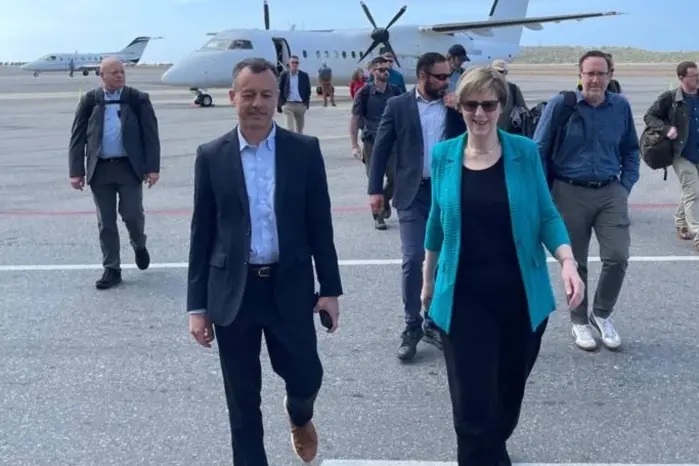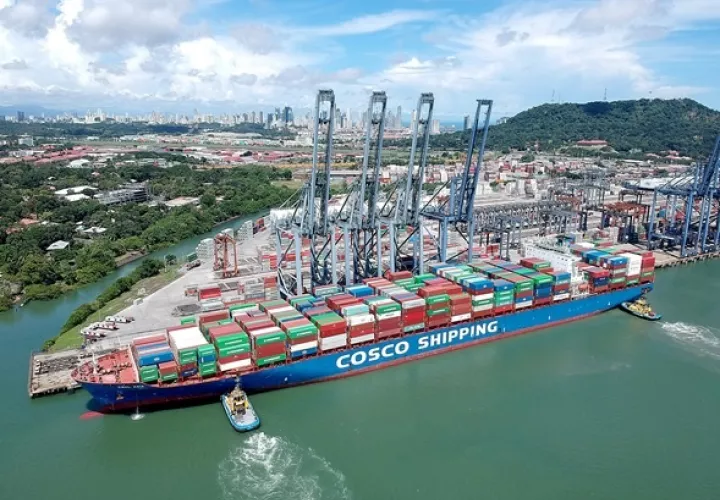Second Passports, Maybe a Third

The rich are getting second passports. The wealthy are building “passport portfolios” — collections of second, and even third or fourth, citizenships — in case they need to flee their home country citing the risk of instability. For others, U.S. politics is the driver. It is very interesting in Panama during times of the US elections. There is always an exodus of Democrats to Panama when Republicans win elections and an exodus of Republicans to Panama when Democrats win elections, all citing that America is going to hell in a hand basket. Panama is a very popular destination for US retirees, and investors, as we utilize the US dollar, or at least our Balboa is equivalent or on par with the US dollar and has been since 1903-1904 era.
Recent high-profile examples of second citizenships include billionaire tech investor Peter Thiel, who added a citizenship in New Zealand, and former Google CEO Eric Schmidt, who applied for citizenship in Cyprus. The top destinations for supplemental passports among Americans are Portugal, Malta, Greece and Italy. Wealthy U.S. families are increasingly applying for second citizenships and national residences as a way to hedge their financial risk.
Americans now outnumber every other nationality when it comes to securing alternative residences or added citizenships. One American was quoted as saying “The U.S. is still a great country, it’s still an amazing passport, but if I’m wealthy, I would like to hedge against levels of volatility and uncertainty. The idea of diversification is well understood by wealthy individuals around what they invest. It makes no sense to have one country of citizenship and residence when I have the ability to actually diversify that aspect of my life as well.”
Of course, the wealthy aren’t packing up en masse and ditching their American citizenship. While a relatively small number of Americans do renounce their citizenship every year to declare a new home country, mainly due to tax-filing requirements, the so-called “exit tax” required to renounce citizenship makes it financially prohibitive for most except the ultra-wealthy to simply renounce and declare a new citizenship. Instead, many wealthy Americans are shopping around for an added visa or citizenship program to supplement their U.S. passport.
The top destinations for supplemental passports among Americans are Portugal, Malta, Greece and Italy. Portugal’s “Golden Visa” program is especially popular since it provides a path to residency and citizenship — with visa-free travel in Europe — in exchange for an investment of 500,000 euros (roughly $541,000) in a fund or private equity. Malta offers a Golden Visa for 300,000 euros invested in real estate, which has become “especially popular with Americans.”
With Malta you become a European citizen, with complete settlement rights across Europe. So you can live in Germany, your kids can go and study in France and you have the right to live, work and study throughout Europe. There are three main reasons for the rise of American passport portfolios, or “domicile diversification.” An alternative passport makes travel easier for Americans venturing to parts of the world that are less friendly to the U.S.
For American, British, and Israeli citizens suddenly unsure of their welcome abroad, supplementary passports provide vital flexibility. With rising global instability, holding citizenship in another country, particularly one that is considered more neutral or politically benign, now provides a valuable back-up or alternative option.
Another reason is business travel, which can be safer and less conspicuous with a non-U.S. passport in many countries. U.S. business leaders could be targets for resentment, hostage-taking, or random terrorism in the chaos of collapsed states or high-risk countries they need to travel to for business purposes. Interested parties range from hedge-fund managers who meet with global clients to mining company executives who visit operations sites.
Using a secondary passport can also help cross-border financial transfers or deals within the new country. Finally, some wealthy Americans simply want a back-up residency for possible retirement, to be closer to their families who live abroad or for lifestyle reasons in the new age of remote work. “We all live in uncertain times, not just in the U.S., but in all nations globally. Who knows what’s going to happen next. It’s really about having not only a Plan B but Plan C and D in place as well.





